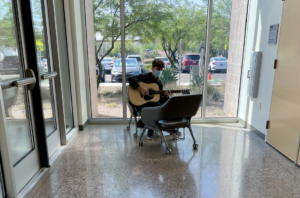Who Will Own the Lifelong Learning Relationship?

Professional schools are beginning to think about their job as more than facilitating the first credential, they want to Power Lifelong Learning Relationships. Likewise, membership associations seeking a sticky value-added relationship with members would love to support the individual learning plans of their members.
Dennis Yang, president at Udemy, has been thinking about this for more than a year. They launched Udemy for Organizations–an online learning initiative to help companies and associates build more personalized and effective training and development functions.
How will this play out by sector? Yang suggests three key criteria:
Regulation. How regulated is the sector? For example, healthcare and formal education are both highly regulated and, as a result, tend not to be open to innovation from new providers–incumbents and authorizers define delivery.
For docs, engineers, and accounts (and other state licensed professions), professional schools are in pole position to support individual development plans–in competition with specialist associations.
For K-12 educators, districts or networks will take the lead on paying for ongoing learning but since educators are portable, records and relationships will need to be portable as well. Most districts will serve as single payer but not exclusive provider suggesting the potential for vendors to create long-term relationships with districts and teachers.
Sectors with required continuing education requirements may, on one hand, lend themselves to lifelong learning relationships. But the system of credits may serve as a barrier to innovation. Tech and business are much more competency-based and more open to innovation.
Dynamism. How much new content and learning is coming to the market that is required of the professionals to learn? There is more to learn in sectors being disrupted by innovation.
In business and technology, Yang said, “There is tremendous amount of new material that is becoming necessary for professionals.” Take marketing professionals, if you have been out of school for 10 years, you have witnessed the birth and rise of Facebook, Twitter, iOS, Android, etc. – all platforms that require new expertise.
The explosion of new capabilities raise the question of who will be capable of creating and delivering all this new fresh content that teaches people these new skills?
Specialization. How much diversification or specialization of content is required by the sector? Again, this is typically due to new technologies disrupting the underlying industry. For example, technology is creating a ton of new roles in business. In marketing, there are now jobs dedicated to “email marketing”. And, to be a good email marketer, you must learn a specific type of HTML that renders well in email to be effective. Udemy has that class – a very specific learning that needs to get adjusted over time as mobile email clients change.
Yang suggests that schools are not equipped or designed to change their curricula fast enough to keep up with this diversification of content. “For those industries or categories where an onslaught of new and diversified learnings are required to stay relevant, we expect to thrive because of our unique model.” In the most unique and dynamic categories, professionals will build a long term relationship with Udemy directly. In a growing number of categories there will be a valued-added relationship featuring a user interface and blended learning opportunities.
It’s hard to say who will take the lead for business professionals. Susan Cates, UNC thinks B schools have a shot. Some training will be regional, so chambers of commerce could get a slice. Where learning is very job specific, realtors for example, associations will have a shot at a slice.
Micro-credentialing (badges), references, and evidence (portfolios) will an increasing part of market signaling–folks like Linkedin would like to own that and a slice of ongoing training and certification.
So, who will own the learning plan app? It depends, but it’s clear, said Yang, that, “Technology is quickly disrupting professional and personal skills at a rate that has never been seen before in history.”
Udemy is a portfolio company of Learn Capital where Tom is a partner.








0 Comments
Leave a Comment
Your email address will not be published. All fields are required.